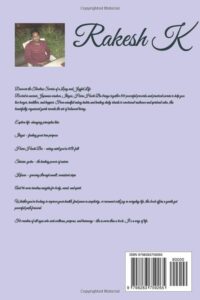In the picturesque islands of Okinawa, Japan, exists one of the world’s five “Blue Zones” – regions where people routinely live past 100 in remarkably good health. Among their many lifestyle practices, one stands out for its elegant simplicity: hara hachi bu, or eating until you’re 80% full. This centuries-old Confucian-inspired teaching has become a cornerstone of Okinawan health wisdom, and modern science is now validating what these islanders have known intuitively for generations.

What Exactly Is Hara Hachi Bu?
The term hara hachi bu translates literally to “belly 80 percent full.” It’s a mindful eating practice that encourages stopping food consumption when you feel about 80% satisfied – not still hungry, but not completely full either. This subtle distinction creates a profound difference in both immediate digestion and long-term health outcomes.
Practicing hara hachi bu isn’t about caloric restriction or denying yourself pleasure. Rather, it’s about recognizing the natural delay between eating and feeling satiated. Our bodies typically take 15-20 minutes to register fullness signals, meaning that stopping at 80% often results in feeling completely satisfied shortly after finishing your meal.
The Science-Backed Benefits of Eating to 80%
Extended Lifespan and Healthspan
The Okinawan population has one of the highest concentrations of centenarians in the world. Research published in the Journals of Gerontology suggests that their moderate calorie intake through hara hachi bu plays a significant role in their exceptional longevity.
Studies on caloric restriction consistently demonstrate extended lifespan in various organisms. A landmark 2018 study published in Cell Metabolism showed that even moderate calorie reduction (without malnutrition) slowed biological aging processes and reduced age-related disease risk factors in humans.
Optimized Digestive Function
Eating until only 80% full reduces the workload on your digestive system. When we overeat, our stomach stretches beyond its comfortable capacity, requiring more digestive enzymes and energy for processing. This can lead to that uncomfortable post-meal sluggishness many of us are familiar with.
Dr. Valter Longo, director of the Longevity Institute at USC, explains: “Giving your digestive system regular breaks from processing maximum food loads appears to promote cellular repair mechanisms that might otherwise remain dormant.”
Improved Metabolic Health
Research in the Journal of Clinical Endocrinology & Metabolism found that moderate calorie restriction improves multiple markers of metabolic health, including:
- Enhanced insulin sensitivity
- Lower fasting glucose levels
- Improved lipid profiles
- Reduced inflammatory markers
- Better blood pressure regulation
These metabolic improvements translate to reduced risk for conditions like type 2 diabetes, cardiovascular disease, and metabolic syndrome.
Weight Management Without Strict Dieting
Perhaps one of the most appealing aspects of hara hachi bu is its effectiveness for weight management without the psychological burden of strict dieting. A 2019 study in Obesity demonstrated that participants who practiced mindful eating similar to hara hachi bu achieved similar or better weight outcomes compared to traditional calorie-counting methods, with significantly better psychological outcomes and long-term adherence.
Enhanced Cognitive Function
Emerging research suggests that moderate calorie reduction may protect brain health. A 2016 study in Neurology found that caloric moderation similar to hara hachi bu levels was associated with improved memory and reduced risk of mild cognitive impairment in older adults.
How to Practice Hara Hachi Bu in Modern Life
Implementing this ancient wisdom in today’s fast-paced, portion-distorted food environment requires intention and practice. Here are detailed strategies to help you embrace this approach:
1. Develop Your Hunger-Fullness Awareness
Create a personal hunger scale from 1-10, where:
- 1 = Extremely hungry/empty
- 5 = Neutral
- 8 = Comfortably satisfied (your target)
- 10 = Uncomfortably full
Before eating, assess your hunger level. Aim to begin meals when you’re at about a 3 or 4 (hungry but not ravenous), and finish when you reach approximately an 8.
2. Slow Down Your Eating Pace
- Put your utensils down between bites
- Chew each mouthful thoroughly (aim for 20-30 chews per bite)
- Take small sips of water between bites
- Engage in conversation during meals
- Set a minimum mealtime (e.g., 20 minutes)
Research in the Journal of the Academy of Nutrition and Dietetics confirms that slower eating correlates directly with reduced food intake and enhanced satisfaction.
3. Practice Mindful Eating Techniques
- Remove distractions (turn off screens, put away phones)
- Notice the sensory qualities of your food (appearance, aroma, texture, flavor)
- Express gratitude before beginning your meal
- Periodically pause during meals to assess your fullness level
- Consider using smaller plates and serving utensils
4. Implement Strategic Portion Control
- Serve yourself 20% less than you think you want
- Use smaller dishware (research shows this naturally reduces portion sizes)
- Pre-portion snacks rather than eating directly from packages
- When dining out, consider ordering an appetizer as your main or sharing entrées
- Pack up leftovers before beginning your meal
5. Address Emotional and Environmental Eating Triggers
- Keep a food journal noting hunger levels and emotions before eating
- Create environmental cues that support moderation (e.g., storing tempting foods out of sight)
- Develop non-food coping strategies for stress, boredom, and other emotional triggers
- Practice brief meditation or breathing exercises before meals to center yourself
Common Challenges and Solutions
Challenge 1: Cultural Expectations Around “Cleaning Your Plate”
Solution: Reframe your thinking about food waste. Consider that eating more than your body needs is also a form of waste. Prepare or order reasonable portions, and save leftovers properly.
Challenge 2: Distinguishing Between Different Types of Hunger
Solution: Learn to identify true physiological hunger (gradual onset, stomach-centered) versus emotional or environmental hunger (sudden cravings, often for specific comfort foods).
Challenge 3: Social Pressure in Group Dining Situations
Solution: Practice subtle strategies like pacing yourself with the slowest eater at the table, drinking water between bites, and preparing a polite response to food pushers (“Everything was delicious, but I’m comfortably satisfied now”).
Challenge 4: Initial Feelings of Deprivation
Solution: Focus on quality over quantity. Many practitioners find they actually enjoy food more when eating less, as they’re more attuned to flavors and textures. Also, remember that mild hunger before meals actually enhances taste perception.
Beyond Weight Management: A Philosophy of Moderation
What makes hara hachi bu particularly powerful is that it transcends being merely a weight management technique. In Okinawan culture, this practice reflects a broader philosophy of moderation that extends to many aspects of life.
Dr. Bradley Willcox, principal investigator of the Okinawa Centenarian Study, notes: “The concept of moderation is deeply ingrained in Okinawan culture. It’s not just about food, but about finding balance in all things—work, rest, pleasure, and even in one’s emotional life.”
This balance may be key to another remarkable statistic from Okinawa: in addition to living longer, Okinawans typically enjoy more healthy years, with significantly lower rates of chronic disease and disability in late life compared to Western populations.
Ancient Wisdom Meets Modern Science
As our understanding of nutrition and longevity evolves, the simple wisdom of hara hachi bu stands validated by cutting-edge research. This ancient practice offers a refreshing alternative to the cycle of restrictive dieting and overindulgence that characterizes many modern approaches to eating.
By embracing the principle of moderate satisfaction rather than maximum fullness, we may not only improve our physical health metrics but also develop a more mindful, balanced, and ultimately more enjoyable relationship with food.
Perhaps the most compelling argument for hara hachi bu comes from observing the Okinawans themselves: these centenarians continue to lead active, engaged lives well into their 90s and beyond, maintaining independence, mental clarity, and zest for life that many younger people might envy.
In our quest for health optimization, sometimes the most profound insights come not from the latest trend or supplement, but from time-tested wisdom that has sustained generations of healthy people. Hara hachi bu may be exactly such a practice—simple enough to implement today, yet powerful enough to transform your health for decades to come.
Hey there! We hope you love our fitness programs and the products we recommend. Just so you know, Symku Blog is reader-supported. When you buy through links on our site, we may earn an affiliate commission at no extra cost to you. It helps us keep the lights on. Thanks.
Disclaimer: The information provided in this discussion is for general informational and educational purposes only. It is not intended as medical or professional advice. Only a qualified health professional can determine what practices are suitable for your individual needs and abilities.


